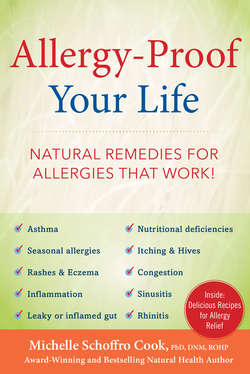Читать книгу Allergy-Proof Your Life - Michelle Schoffro Cook - Страница 18
На сайте Литреса книга снята с продажи.
MEDICATIONS: HIGH RISK, LOW REWARD
ОглавлениеWe might accept the serious side effects of many of these drugs if we knew they would cure us of what ails us, but the reality is that drugs don’t cure diseases; they mitigate symptoms. And in most cases, they don’t work much better, if at all better, than a placebo. According to Dr. Allen Roses, a scientist and the former global vice president of genetics at GlaxoSmithKline, “Most prescription medicines do not work on most people.” He added, “The vast majority of drugs—more than 90 percent—only work on 30 to 50 percent of the people.”14
Harvard University research found that approximately 50 percent of the effectiveness of pharmaceutical drugs can actually be linked to the placebo effect, not the actual effectiveness of the medication. Study participants were given either a pain drug or a placebo. When either the drug or placebo was administered with the message that it is an “effective treatment,” both had significantly better results. When the real drug was switched with the placebo, the results were nearly the same, provided that the message of the effective treatment accompanied the pills.15
It should be fairly clear by now that the effectiveness of prescription drugs is much less than you may have believed. Much of their effectiveness can be attributed to the placebo effect or advertising or physician messaging that suggests that the drugs are effective. Additionally, when we refer to drugs as effective, we simply mean they reduce symptoms. Sadly, no drug has ever cured allergies. And considering the high cost, both financial and in terms of side effects, the minimal symptom improvement sometimes offered from pharmaceutical drugs is simply insufficient.
Consider a media release issued by the Orthomolecular Medicine News Service entitled “Does Anybody Still Believe Slam Pieces on Dietary Supplements?” In it, the organization reported that “the biological action of most prescription drugs can be duplicated with dietary supplements at far less cost and side effects. . . .”16
The nutrients, however, do not share the extensive list of side effects that accompany most prescription and OTC drugs, particularly in the category of pharmaceutically prepared analgesics. Twenty years ago, astute medical professionals who kept up on the research knew that nutrients could replace prescription drugs for treating disease.
As you’ll soon discover in Allergy-Proof Your Life, foods, nutrients, natural medicines, and lifestyle modifications go a long way toward alleviating allergy symptoms and, in many cases I’ve personally witnessed, eliminating the allergies altogether.
Forget blaming bad genes for the conditions that ail you: allergies are included as pioneering research into a specific field known as nutrigenomics—the study of the effects of nutrition on the expression of DNA. Nutrigenomics has found that certain nutrients formed compounds that could actually “turn off” the expression of so-called bad genes.17 While we once believed our genes were comparable to ticking time bombs just waiting to go off, leading scientists and nutritionists now know that what we eat and how we live plays a much greater role in preventing or even reversing the effects of our genes than we ever imagined possible.
If you believe drugs are the only effective options for allergies, think again. Besides that, many drugs actually cause the same symptoms they are taken to alleviate. The natural options I’ll share with you over the coming chapters not only reduce allergy symptoms; they also strengthen and balance the body to quiet an overactive immune system and go to the root cause of the allergies themselves—which is not a drug deficiency disease as the pharmaceutical industry would have you believe.
